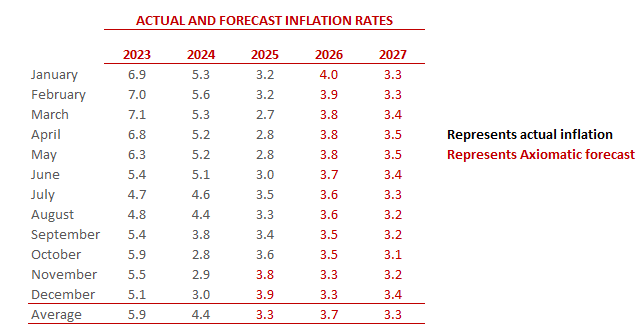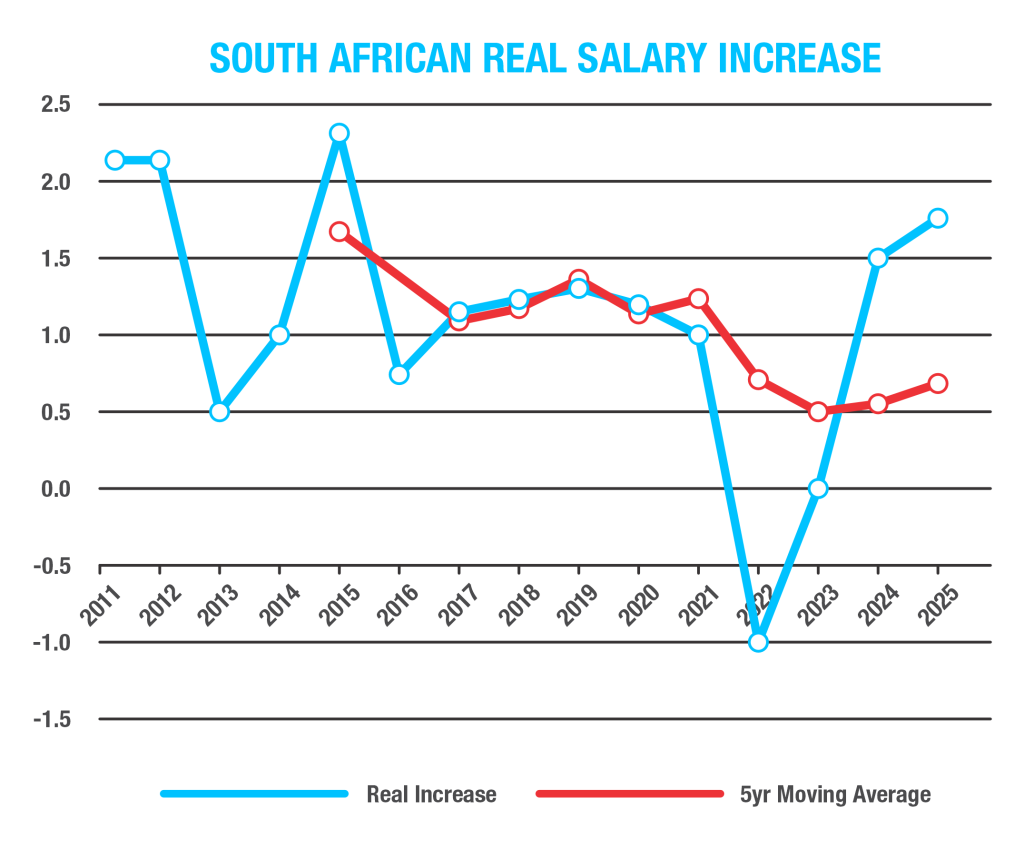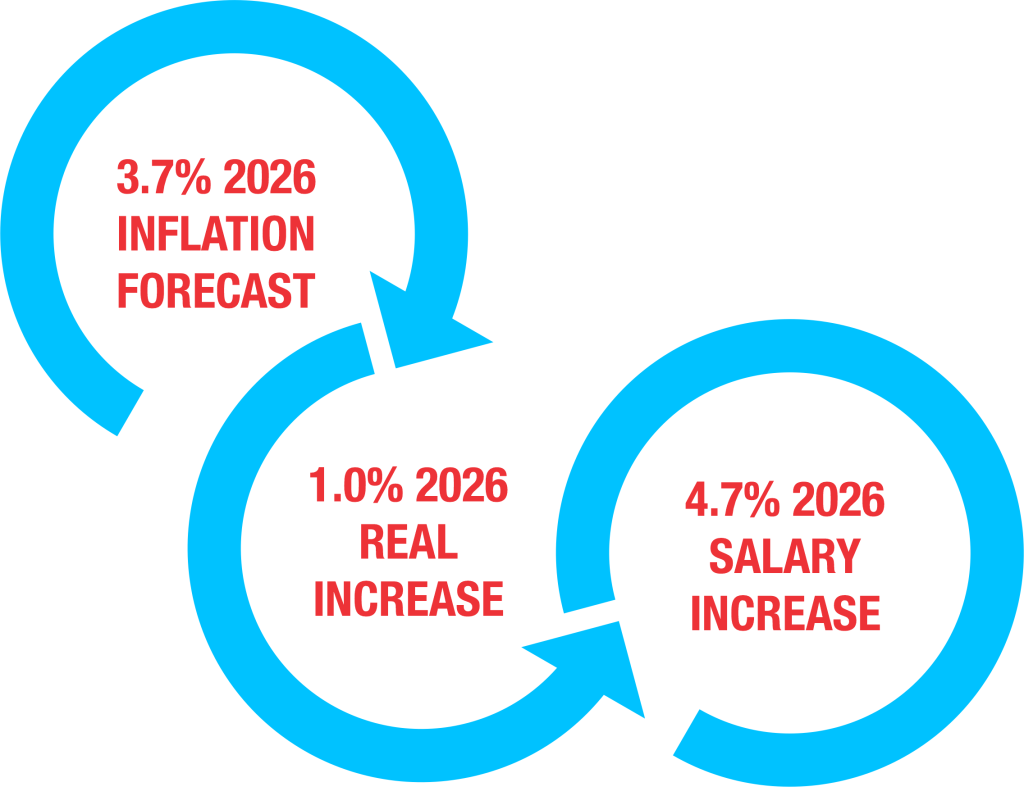
2026 SA Salary Increase: What Salary Increase Will You Use?
“Sharon, please could you give Bob from Finance the forecast salary increase percentage for 2026 and the projected increase in our salary cost?”
However, preparing the forecast is not as daunting as it seems. We have long advocated for a scientific approach to the preliminary salary increase forecast. Start with an initial estimate, then refine it over the coming months as economic data unfolds. Finally, incorporate qualitative factors to formulate an equitable final salary increase for 2026.
Inflation
Consistent with the Axiomatic methodology, we recommend a forward-looking approach—forecast inflation for 2026 and base the proposed salary increase on that projection. This method calculates the portion of the increase that will be absorbed by inflation. In contrast, the backward-looking approach, which uses the previous year’s inflation rate, is less effective because past inflation is already “sunk” and does not influence future purchasing power.
Axiomatics’ inflation forecast for the remainder of 2025, 2026 and 2027 is detailed in the table below:


“… we have moved away from the 3-6% target range, which was established 25 years ago. The revised target, agreed between the Minister of Finance and myself as the Governor of the South African Reserve Bank, is 3% plus or minus 1 percentage point… Most of the time, we should be expected to keep inflation within the tolerance band, with breaches occurring only when there are severe shocks. We will always be setting policy so that inflation is going back to 3%… The tolerance band, of 1 percentage point either side of 3%, does not mean we will be indifferent to inflation anywhere between 2% and 4%. We want to be at 3%.”
Real Salary Increase

FORECAST OF 2026 SALARY INCREASE

However, our current forecast salary increase for 2025 is thus 5.00%.
We do acknowledge that this represents a 1.3% real increase. Even with this adjustment, the five-year average real increase remains modest at 0.7%.
Stay ahead of the curve, contact us for the latest insights and ensure your business remains competitive!
Refine Your 2026 Salary Strategy
Stay Ahead of the Curve by Accessing Axiomatic’s Latest Economic Data and Quantitative Analysis to Ensure Your Business Remains Competitive and Financially Prudent.
COOKIE POLICY
Welcome to our website.
1. Introduction
This Cookie Policy explains how we use cookies and similar technologies on our website axioconsult.com. This policy is designed to help you understand what cookies are, how we use them, and the choices you have regarding their use.
2. What Are Cookies
Cookies are small text files that are stored on your device (computer, tablet, or mobile phone) when you visit certain websites. They are widely used to enhance your online experience by remembering your preferences and actions over time. Cookies are not harmful and do not contain personal information like your name or payment details.
3. How We Use Cookies
We use cookies for various purposes, including:
- Essential Cookies: These cookies are necessary for the basic functioning of our website. They enable you to navigate our site, use its features, and access secure areas.
- Analytical/Performance Cookies: These cookies help us understand how visitors use our website. They provide information about which pages are visited most frequently, how long visitors stay on each page, and whether they encounter any error messages. This data helps us improve the performance and usability of our website.
- Functionality Cookies: These cookies allow our website to remember choices you make (such as your username, language, or region) and provide enhanced, personalised features.
- Targeting/Advertising Cookies: These cookies are used to deliver advertisements that are relevant to your interests. They may also limit the number of times you see an ad and help measure the effectiveness of ad campaigns.
4. Your Cookie Choices
You have the option to manage your cookie preferences. You can usually modify your browser settings to accept, reject, or delete cookies. Please note that if you choose to block or delete cookies, some features of our website may not function properly.
5. Third-Party Cookies
We may allow third-party service providers to use cookies on our website for the purposes outlined in Section 3. These providers may also collect information about your online activities over time and across different websites.
6. Updates to This Policy
We may update this Cookie Policy from time to time to reflect changes in technology, law, or our data practices. Any changes will become effective when we post the revised policy on our website.
7. Contact Us
If you have any questions about our Cookie Policy or how we use cookies on our website, please contact us at
By continuing to use our website, you consent to the use of cookies as described in this Cookie Policy.

